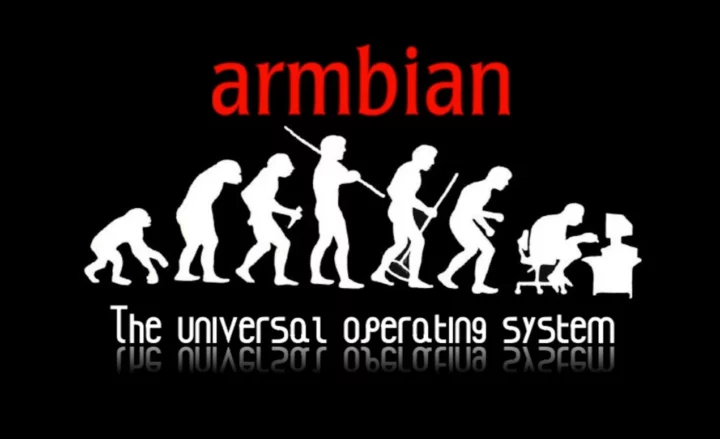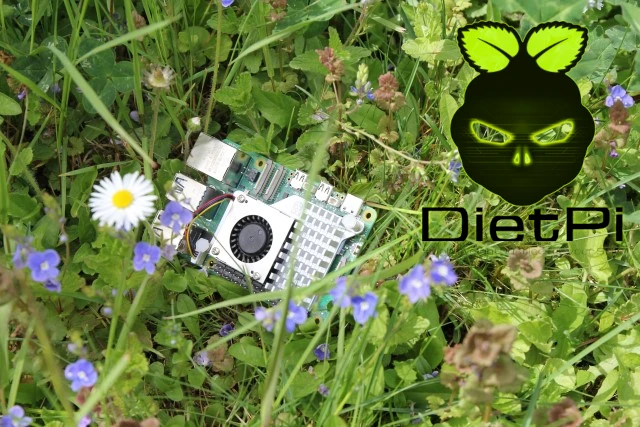There’s been some notable software news for single board computers (SBCs) in the last few weeks with the release of Armbian 24.5.1 Havier with a focus on stability and UX improvement, the release of DietPi 9.4 lightweight Debian distritions for SBCs, and Otii server, the software for Qoitech Arc power supply, meter, and DAQ, has been finally released for the Raspberry Pi 4/5.
Armbian 24.5.1 Havier
Armbian announced 24.5.1 Havier on May 25 with bug fixes and improvements as a point release, but also some new boards. Here are some of the highlights.
- New boards
- Orange Pi 5 Pro
- FriendlyElec CM3588 NAS board
- Radxa ROCK 5 ITX
- Radxa Zero 3E/3W
- Avaota A1 SBC
- SK-AM68 board
- tqma8mpxl board
- CSC Hinlink H6xk boards
- RK3588-based Cool Pi CM5 EVB
- Improve Khadas support
- Resolve Rockchip patch maintenance nightmare
- Add functionality to freeze git resources
- Improve support for Radxa Rock S 0 and test USB and Ethernet
- Add KDE Neon desktop to Armbian Jammy
- Add board Bananapi M7 to vendor kernel 5.10 and 6.1
- Update meson edge to 6.8 kernel
- Rockchip-rk3308-current: sakura pi rk3308b adds kernel 6.6 and 6.8 support
- Switch odroidxu4-current kernel to 6.6
- VIM1S/VIM4: Allow building on arm64 platform
- VIM1S/VIM4: Add support for eMMC + NVME/USB booting
- H96-TVbox-rk3566 Board Bring Up
- Rock 4C+: update and cleanup boot config
- Enable *NVMe-over-TCP* for rk35xx/rk3588/rockchip64/uefi/wsl
- Develop build config for board BananaPi M4 Zero
- Develop and add Ayn Odin2 build config
- Develop PPA for (patched) aarch64 Chromium
- And many more shown the full changelog.
As usual, you can download the latest images on the Armbian website with different levels of support: Platinum means the SBC vendor is paying for support, Standard means the Armbian team still works on it since the image is for a relatively popular board, and community supported where motivated users maintain it themselves. Banana Pi and Khadas are the two companies paying for Platinum support.
DietPi 9.4
The release of DietPi 9.4 was announced on May 12 with new images for ROCK 4C Plus, Orange Pi 3 LTS, Radxa Zero 3E/3W, and Orange Pi Zero 2W SBCs.
Some enhancements in DietPi 9.4 include:
- DietPi scripts do now internally enforce the default umask 0022. Many config and install options rely on this, hence it can cause permission issues.
- NanoPi R5C – M.2 Modules supports for new images, or when flashing the new bootloader binary via dietpi-config -> Advanced Options -> Update MMC bootloader
- Orange Pi 3B – Added an option for updating the SPI bootloader via dietpi-config -> Advanced Options -> Update SPI bootloader.
- ODROID-XU4 – The kernel has been upgraded to Linux 6.6 for this older board.
- DietPi-CloudShell – On Odroid XU4, when using the CloudShell 2 LCD, during configured auto screen off times, the backlight power of the LCD will be disabled as well, to save energy and avoid still visible black display content.
- DietPi-Config – Added an option to the LCD display menu to toggle the Odroid XU4 CloudShell 2 LCD.
- DietPi-Software | Snapcast – 64-bit ARM and Debian Bookworm + Trixie will have the now available packages from Snapcast installed, instead of those from the Debian repository.
You’ll find more changed in the aforelinked announcement. The latest DietPi 9.4 images can be found on the download page for a wide range of SBCs, x86 machines, and some virtual machines.
Otii server for Raspberry Pi 4/5
Fewer people will know about that one, so I’ll explain what the Otii server is. It’s a program that runs on a host typically Windows, Linux, or macOS to control/manage the Otii Arc Pro or Otii Ace Pro 3-in-1 smart power supply, power meter, and DAQ that is a great developer tool for hardware and software engineers that need to optimize the power consumption of their design, firmware, or app. I had the opportunity to review the Qoitech Otii Arc Pro measuring the power consumption of an ESP8266 board and Raspberry Pi 4 SBC several years ago.
But the latest news is not about using the Raspberry Pi 4 or 5 as a device under test (DUT), but as a server, so you don’t need to waste a more powerful machine or laptop for longer measurement runs. An inexpensive SBC can do the same job. Check out the documentation to get started with the Otii software on Raspberry Pi 4/5 with 8GB RAM (recommended) and a USB or NVMe SSD since microSD cards can quickly degrade with continuous logging.

Jean-Luc started CNX Software in 2010 as a part-time endeavor, before quitting his job as a software engineering manager, and starting to write daily news, and reviews full time later in 2011.
Support CNX Software! Donate via cryptocurrencies, become a Patron on Patreon, or purchase goods on Amazon or Aliexpress







